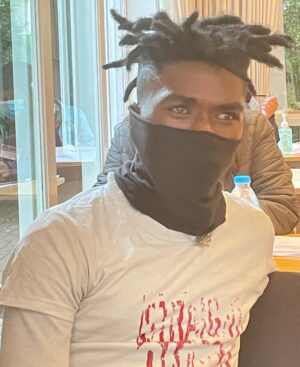
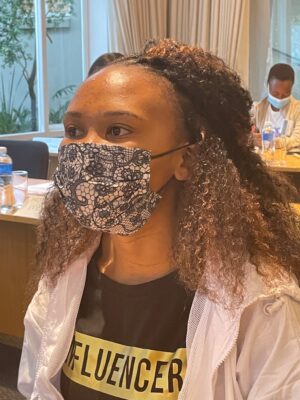
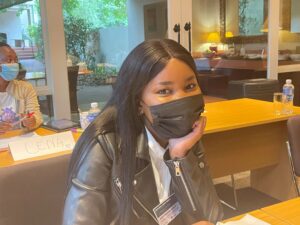
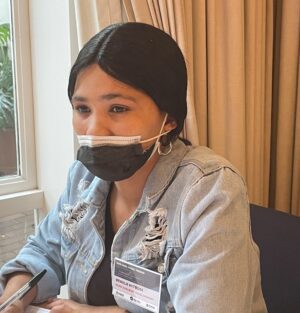
The spread of disinformation has become a global pandemic that has been largely driven by social media. Accessing most of their information online, and with limited media literacy skills, the ability to identify disinformation correctly and quickly has become a critical skill for young people.
That is why Internews developed the Youth Media Literacy Program, which currently offers training to university journalism students and young leaders from country civil society organizations in South Africa, Lesotho, Eswatini, and Botswana. The program, which is being led by the South Africa Internews team, was specifically developed to enhance the media literacy skills of young people, to give them practical tools they can apply to their daily situations to critically assess whether the content they are consuming is real or is indeed disinformation.
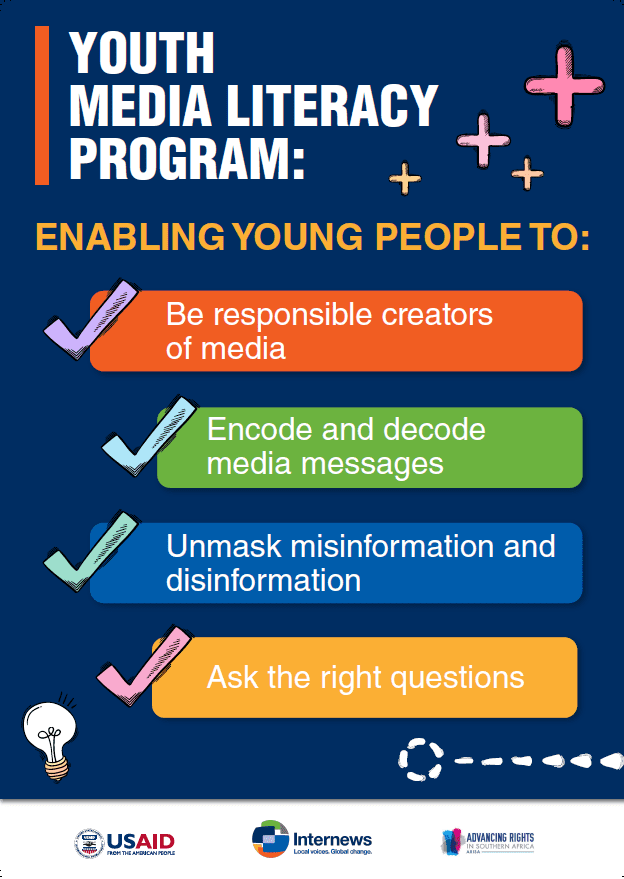
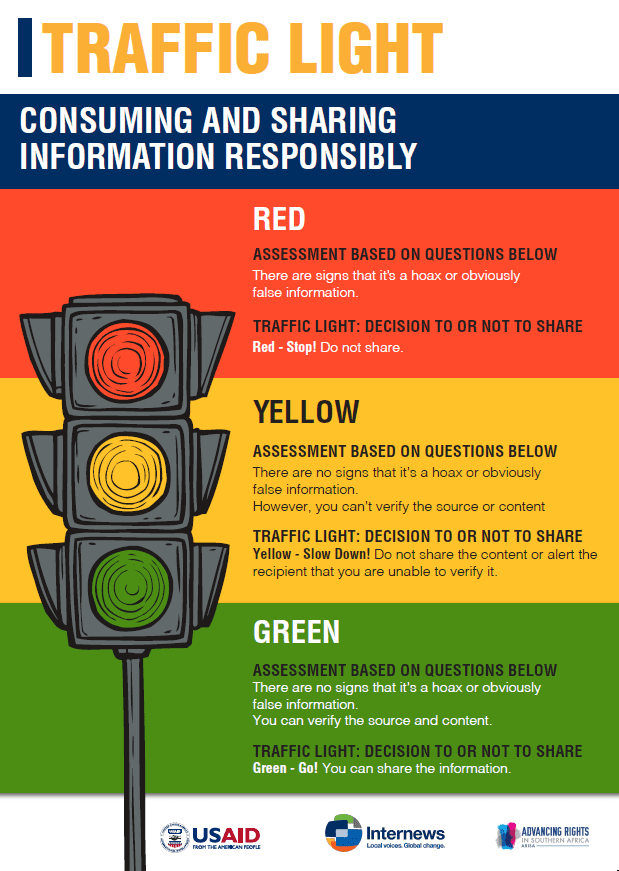
At the onset, Internews decided to work with leading African editors, social media influencers, fact-checking, media monitoring, and digital forensics experts. This expertise, combined with the personal journalism, advocacy development, and social media skills of the Internews team, helped to create a comprehensive training and mentorship support program. In the past 10 months, a total of 74 young people have been trained. Putting the learnings into practice, a total of 28 stories have been produced by the journalism students and published in local print and campus media. The purpose of this was to ensure that the journalism students develop good fact-checking habits that will assist them when writing stories as working journalists, to avoid unintentionally publishing misinformation. For many, it was a proud moment to see their first-ever by-line in a local newspaper! Told by young people, for young people, their stories reflect a multitude of issues facing the youth, much of which was exacerbated by the Covid-19 pandemic.
Through their stories, the young journalists shone a spotlight on issues ranging from Teenage pregnancy, being a national social issue and its impact on schooling dropouts, to how misinformation and disinformation on Vaccine theories puts South Africans at loggerheads, as well as The effects of the covid-19 pandemic on people’s mental health. Some of the students also shared how the Youth Media Literacy training would directly benefit them personally and their future careers, sharing how the Tshwane University of Technology’s (South Africa) Journalism students are learning the tricks of the game and how the YMLP program has given Journalism students given head start in the media industry.
The link between learning and practice is what Herbert Moyo, Editor of the Lesotho Times, believes makes the Youth Media Literacy Program a game-changer. “For me, it’s truly a brilliant initiative. The detailed training and first-hand experience that the journalism students receive is priceless. The story writing aspect ensures that they get good practical insights into what it takes to write a good story. This is often left too late, as their academic training is often too theoretical. That’s why this training by Internews is priceless, it’s a chance to ‘catch them while they are still young,’ before they enter the workplace, which hardly ever happens.” Moyo participated in the inaugural YMLP training in Lesotho and mentored the Lesotho Limkokwing of Creative Technology University journalism students, helping them to publish 12 stories for the independent Lesotho Times and Sunday Express.
Through the mentorship of the students to produce high-quality stories for the two publications, Moyo was able to convince his publisher of the merits of establishing a dedicated internship program, where young students will be able to hone their journalism skills and put their knowledge into practice. The paper entered into an agreement with the Limkokwing University’s Journalism Department and are currently working with their first cohort of 5 interns who are bringing fresh ideas to the newspaper. “Our online presence has already increased significantly, and our readers are benefiting from the digital stories being produced by the interns.”
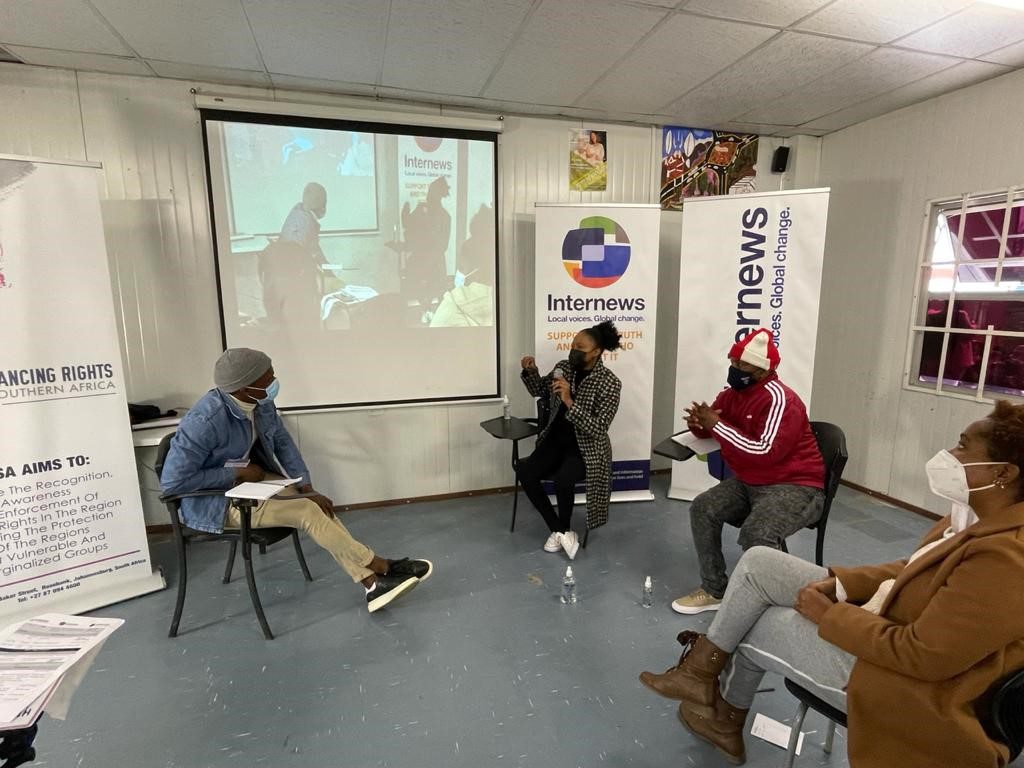
One of the interns is Tsoloane Mohlomi, a YMLP trainee who shared how the training gave him an advantage over others when applying for the competitive internship program. “The training by Internews did a lot for me. It taught me to scrutinize everything, to verify all the information you get, and not just to trust one source. We got first-hand knowledge from people in the industry, and that gave me a big jump over the others who did not attend the training. My biggest tool, though, has been the Handbook, which I use all the time. People look up to me because I have knowledge that others don’t, and they ask me how I know or anticipate something, and I know that the advantage I have is because of the training.”
Echoing Tsoloane’s sentiments echo those of other young people who have attended the Internews trainings and shared the value of the program and how it’s having an impact on how they now look at and publish information, in a way they did not before. Using the lessons learned combined with the reinforcement of knowledge in the Fact-Checking Manual, developed in collaboration with Africa Check, they are applying the program’s lessons to their daily lives, both on a personal and professional level. Another lasting impact of the Youth Media Literacy Program is the awareness of the importance of media literacy training by our University partners.
In Lesotho, the Limkokwing University of Creative Technology will now include Youth Media Literacy content from training materials and the Fact-Checking Manual into its Journalism Studies curriculum, as of 2022. The Internews team has also been invited to guest lecture at the University to share further knowledge with the current cohort of journalism students.
In South Africa, the Tshwane University of Technology was so impressed with the program that the University’s Department for Journalism advised that they will be adding Media Ethics into the department’s curriculum for first-year journalism students, as of 2022. This is seen as part of the University’s efforts to ensure their students are equipped to identify misinformation and disinformation to enhance their journalistic principles and best practice.